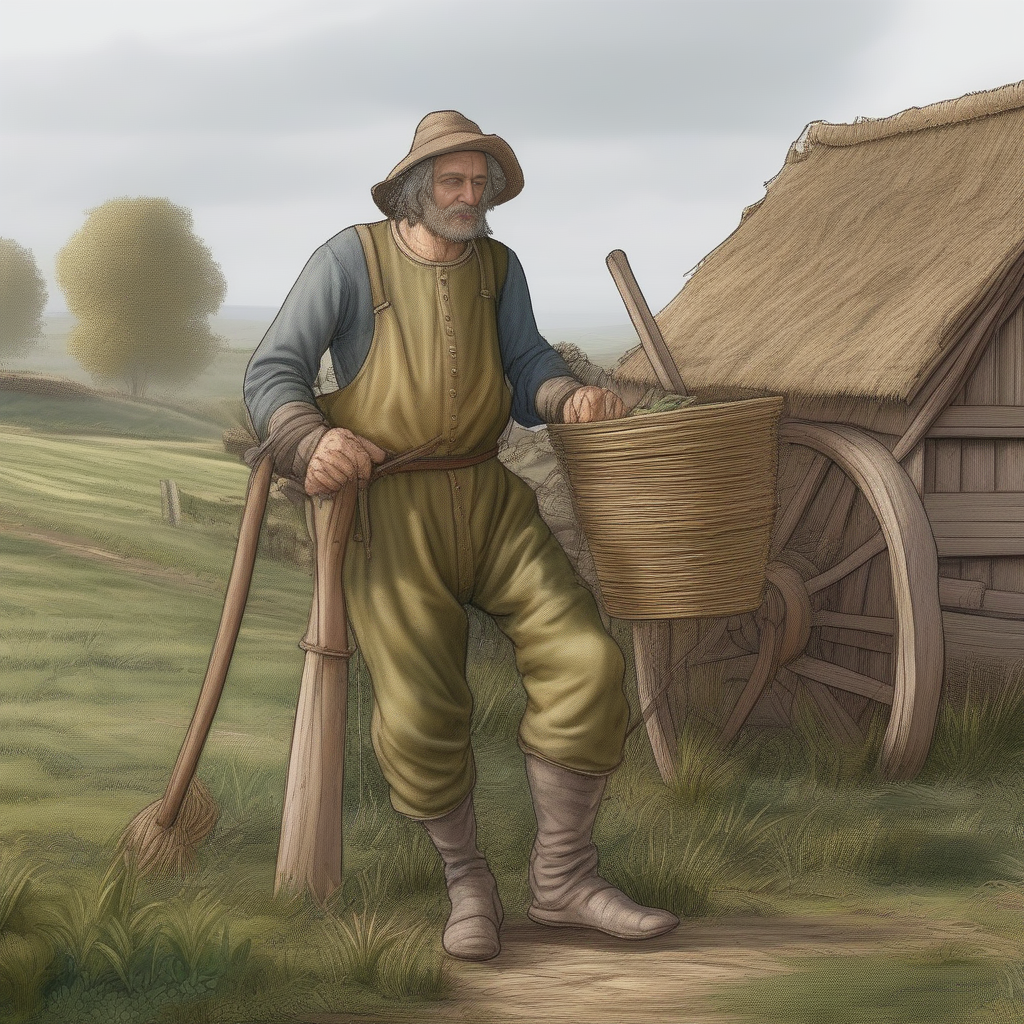A cottar, also known as a cotter or cottere, was a type of tenant farmer or agricultural laborer in medieval and early modern Europe. Cottars typically lived in small, simple dwellings known as cottages, often on the outskirts of a noble’s estate or manor. They worked the land in exchange for a portion of the crops they cultivated, or sometimes for a small wage.
Cottars were considered to be at the bottom of the social hierarchy in rural society, below yeomen and other more prosperous farmers. They often had limited rights and were subject to the authority of the local lord or landowner. However, cottars provided valuable labor for the landowner and played an important role in the agricultural economy of the time.
Although cottars lived a humble and often precarious existence, they were essential to the functioning of the manorial system and the production of food for the larger population. Over time, changes in agricultural practices and land ownership led to the decline of the cottar class, but their legacy can still be felt in the history and culture of rural communities in Europe.
